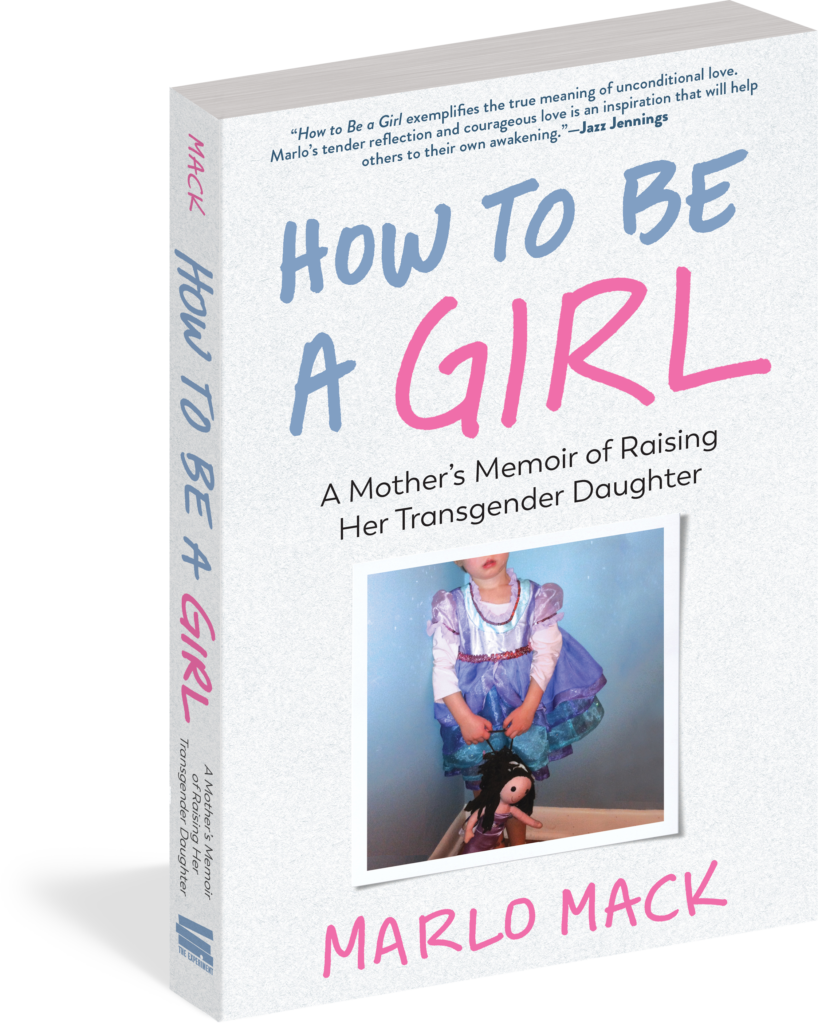Inspired by the award-winning podcast of the same name, How to Be a Girl (publishing October 26) is the true story of a single mother as she learns to say goodbye to her young “son” and embrace her transgender daughter. Together, mother and daughter grapple with skeptical relatives, clueless doctors and teachers, hostile local politics, gossipy parents, and bathroom bills. They also find a loving community of transgender people of all ages while exploring together what it really means to be a girl. Marlo Mack, the book’s author and host of the eponymous podcast, sat down to talk with us about her new book and the experience of raising her daughter.
Q: Why did you want to tell this story, first in your podcast, and now in a book?
Marlo Mack: I wanted people to know what it actually feels like to be the mother of a child like mine. I wanted to invite people into our home, and into my head and heart. There are so many headlines about trans people, so many assumptions and so much misinformation. I wanted to share how “regular” we are, but also how extraordinary and difficult (and also wonderful) it has been to parent a transgender child in a world that barely acknowledges children like mine even exist.
Q: What advice do you have for parents with gender-nonconforming children?
MM: Don’t focus so much on the outcome or the endgame. At the end of the day, your child will be who they are. If they are gay, they will be gay. If they are indeed trans, they will be trans, and you can’t change that fact any more than you can change the color of their eyes. What you can do is be with your child as they walk the path to discovering and becoming their best, happiest, truest self. You can ensure that they make this journey with you, rather than in spite of you. Worry less, listen more. Take a deep breath.

Q: How do you know this isn’t just a phase? Is it really possible for a child to know they are transgender?
MM: Psychologists have known for decades that very young children do indeed know their gender, and that gender is pretty much a settled matter by 4 or 5 years of age. (What kindergartener doesn’t know what gender they are?) Trans kids are no different developmentally in this respect that their cisgender peers. My daughter, like every other girl in her preschool class, had no doubt about her girlhood. However, it’s important to note that many, many trans kids don’t emerge until later, often in their teens, when the full reality of going through the wrong puberty sinks in. Given how little information or support we give to children about gender identity, it’s not surprising that many kids remain closeted (to themselves and everyone else) until they are older.
Q: What is gender, really? Why does it matter?
MM: The more time I spend raising my transgender daughter, the less I think I really know about what gender is. Feminists have long since taught us that gender is not our career, nor is it the length of our hair, the clothes we wear, or what hobbies we love. So what is it? If it is not found in our anatomy or buried in our chromosomes, does gender even exist? I believe it does, but not in our activities, interest, appearance, or even genes. As my daughter put it many years ago, “I’m a girl in my heart.” Her girlhood is essential and ineffable, just as is my own womanhood.

This interview can be reprinted in part or in its entirety with the following credit line:
Interview with Marlo Mack, author of How to Be a Girl: A Mother’s Memoir of Raising Her Transgender Daugher (The Experiment, October 2021).


